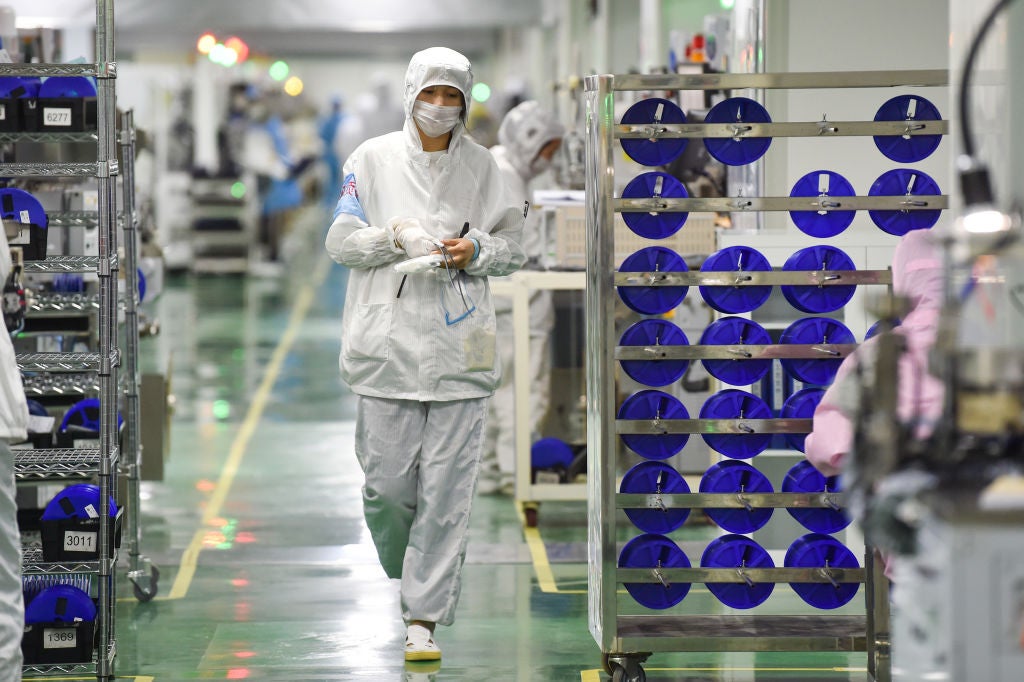
India is to build its first semiconductor manufacturing facility as the global supply chain for semiconductors continues to operate under multiple stresses. A post-Covid-19 macroeconomic downturn, Russia’s invasion of Ukraine and a growing global demand for chips have led to a fractured and volatile supply of advanced semiconductors.
As South East Asia continues to dominate the manufacture and global supply of semiconductors, governments have turned to techno-nationalist policies and alliances to address shortfalls in chip supplies.

Discover B2B Marketing That Performs
Combine business intelligence and editorial excellence to reach engaged professionals across 36 leading media platforms.
In the case of India, reports have emerged of a joint venture between India’s Vedanta and Taiwan’s Foxconn to build a semiconductor fab in the Dholera Special Investment Region near Ahmedabad, Gujrat, although no official announcement has been made.
India has made efforts to diversify its semiconductor supply chain over the past few months. A global supply chain squeeze in 2021 exposed the vulnerability of many locations in accessing high-end semiconductors required for the development of emerging technology as well as legacy semiconductors required for the manufacture of white goods.
In January 2023, India’s Electronic and Semiconductor Association joined forces with the US Semiconductor Industry Association to form a task force to collaborate on the manufacture of semiconductors. In March 2023, reports emerged of the US and India cementing this strategic partnership in a memorandum of understanding to boost foreign direct investment (FDI) in semiconductors in India.
From a US perspective this would mitigate the near monopoly that Taiwan and South Korea have over the production of advanced semiconductors. FDI in Indian fabs would insulate India against further supply chain disruption and integrate the country into the global network of semiconductor manufacturing.

US Tariffs are shifting - will you react or anticipate?
Don’t let policy changes catch you off guard. Stay proactive with real-time data and expert analysis.
By GlobalDataHowever, despite such efforts, India is unlikely to build a domestic supply chain that is close to being worthy of its soaring overall economic prospects until 2035, according to GlobalData consultant analyst Michael Orme.
“It is simply too unattractive a proposition for one or more of the world’s leading semiconductor foundries or integrated device managers to consider, until India can turn crippling red tape into red carpets, upgrade its poor physical infrastructure and offer a far better-educated factory workforce,” he said.
While China, the US, Europe and Japan are all proceeding with policies to increase onshore production, leading global chip companies are not paying the same interest in India’s efforts to increase fab capacity, despite Indian Prime Minister Narendra Modi’s $10bn (Rs825.66bn) in subsidy enticements, according to Orme.
While India does not have a single onshore chip fab in operation, chipmakers including Taiwan’s TSMC and MediaTek and the Netherlands' NXP all have software research and development and chip design operations in India that capitalise on India’s software engineering excellence.
However, India does not hold the same appeal for manufacturers, according to Orme. “India lacks a skilled industrial workforce and chipmaking requires highly skilled factory workers and diligence in highly sensitive clean rooms within warehouse environments, which is what chip fabs are, essentially,” he said.
India also has infrastructure challenges with roads, rail and power stations not on par with its world-class digital infrastructure. Inefficient and corrupt local and central bureaucracies, red tape, tough labour laws and high utility costs exacerbated by power supplies subject to frequent outages across India are just some of the other challenges potential foreign investors may encounter.
Some foreign companies including Foxconn, Pegatron and Wistron have managed to navigate India’s testing business environment, most notably with Foxconn’s Apple iPhone assembly plant. However, the company still has to import key components from China.
Taking India’s operational business challenges into consideration, Orme said that the typical two-year timeline to build a semiconductor fab would not apply in India's case. "It will almost certainly be more like four years before the plant comes fully on stream to make chips, despite Vedanta chairman Anil Agarwal’s confident forecast that the plant will be making chips within two-and-a-half years," he added.





